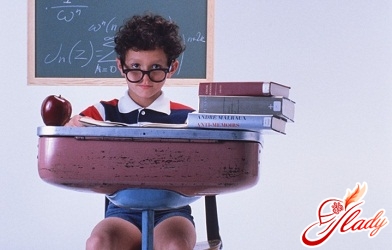 Only a few happy, or vice versa -unhappy, have never encountered in their educational practice (and after all we are the educators of our own children) with such a difficult task: teaching the child to the pot. Despite the fact that this topic can not be called as exciting as the next bohemian scandal involving popular media persons or well-known politicians, but it worries almost all parents. And, consequently, it turns out to be much more important than what the well-known Russian "secular lioness" put on the next ceremony. Not climbing deep into the jungle, and not looking for complex translations from Russian into Japanese, in advance of any child psychology and newfangled techniques, we will make a reservation: all children without exception are sooner or later accustomed to a pot. Of course, in the consideration we do not take single cases of pathologies and mental deviations in the physical development of the organism and the development of the person's personality. But in the period from one year to two (two and a half), all the average statistical healthy children are accustomed to this constant attribute of personal hygiene. Consequently, all the fears of the older generation, the grief of doctors and other "experts" are at least ... exaggerated. Hence comes the second conclusion: if the term is not fundamentally important, then there is no need to put pressure on a little man, forcing him to "walk on the pot". This you can only immeasurably increase the term "taming", or even create a child that is difficult to overcome in the future psychological consequences and trauma. But this conclusion also does not mean at all that "if he himself ever learns, then it's worth nothing". It is worth doing, but very delicately, without pressure and infringement of the rights of a small, but still human, citizen, person. In the eighties of the last century, progressive methods of teaching children to the pot became very popular, according to which it was possible to establish reflexes at a young age, up to one year. But the specificity of these techniques had one obvious drawback: it appealed not to the conscious behavior of the little man, namely, to conditioned reflexes, which could be achieved through long and painful "exercises." The main task in this case is to consider the child's conscious learning. Well, when the unconscious reflexes, grafted at an early age, organically grew into a child's conscious behavior. But this is not the norm of the child's behavior. Therefore, the missed moment of this transition led some young parents into confusion: "How so? After all, we taught and taught. And he suddenly forgot everything! ". © Translation agency «Prima Vista» We recommend reading:
Only a few happy, or vice versa -unhappy, have never encountered in their educational practice (and after all we are the educators of our own children) with such a difficult task: teaching the child to the pot. Despite the fact that this topic can not be called as exciting as the next bohemian scandal involving popular media persons or well-known politicians, but it worries almost all parents. And, consequently, it turns out to be much more important than what the well-known Russian "secular lioness" put on the next ceremony. Not climbing deep into the jungle, and not looking for complex translations from Russian into Japanese, in advance of any child psychology and newfangled techniques, we will make a reservation: all children without exception are sooner or later accustomed to a pot. Of course, in the consideration we do not take single cases of pathologies and mental deviations in the physical development of the organism and the development of the person's personality. But in the period from one year to two (two and a half), all the average statistical healthy children are accustomed to this constant attribute of personal hygiene. Consequently, all the fears of the older generation, the grief of doctors and other "experts" are at least ... exaggerated. Hence comes the second conclusion: if the term is not fundamentally important, then there is no need to put pressure on a little man, forcing him to "walk on the pot". This you can only immeasurably increase the term "taming", or even create a child that is difficult to overcome in the future psychological consequences and trauma. But this conclusion also does not mean at all that "if he himself ever learns, then it's worth nothing". It is worth doing, but very delicately, without pressure and infringement of the rights of a small, but still human, citizen, person. In the eighties of the last century, progressive methods of teaching children to the pot became very popular, according to which it was possible to establish reflexes at a young age, up to one year. But the specificity of these techniques had one obvious drawback: it appealed not to the conscious behavior of the little man, namely, to conditioned reflexes, which could be achieved through long and painful "exercises." The main task in this case is to consider the child's conscious learning. Well, when the unconscious reflexes, grafted at an early age, organically grew into a child's conscious behavior. But this is not the norm of the child's behavior. Therefore, the missed moment of this transition led some young parents into confusion: "How so? After all, we taught and taught. And he suddenly forgot everything! ". © Translation agency «Prima Vista» We recommend reading:

Making Money with Desserts: Success Stories
Yevhen Polishchuk (Fedutinov) instagram: @ evgeniyafedutinovavk.com / janeshomebaking– It all started with baking for relatives and friends. Gradually, she began uploading photos of her baking to Instagram, and orders began to come in. I made my first cake to order on October 13, 2014, and a little earlier I started making macarons and cupcakes. We can say that the business "found me myself", I am very [...]

Soups are cold recipes with photos
Cold cucumber soup with yogurt and lemonSorbet from La Taverna restaurant chef Alexander Zhurkina Photo: Getty Images Ingredients: Yoghurt without additives - 125 gCucumber - 150 gSorbet lemon / lime - 50 gCool shrimp - 24 gFresh ginger - 1 gLime lime - 5 gFresh orange juice - 5 gPetroshka - 1 g pink - 1 gCress salad - […]

barbeque kebab
Pork tenderloin glaze Photos: Dmitry Bayrak / dbstudio Cooking time: 20 minutes + time for pickling. Calorie content: 454 kcal per 1 serving. For 4 servings: 4 pork tenderloin (about 300 g each), 1 onion, 2 cloves of garlic, 1 tsp. lemon peel, 1 tsp. lemon juice, a pinch of ground cumin, coriander and turmeric, 1 tbsp. l vegetable [...]

Pierre Duacan: dietary recipes: Ducane diet
Beetroot Photo: Season'S, Luxury Hotels Representation You will need: · Boiled beets - 60 g · Fresh cucumbers - 20 g · Red radish - 20 g · Green onions - 10 g · Egg - 1 pcs · Mineral drinking water - 200 g · Salt - 1 g Ready: · Boil egg and beetroot. · Grind cucumbers, radishes and a part of beets. Putting everything [...]





